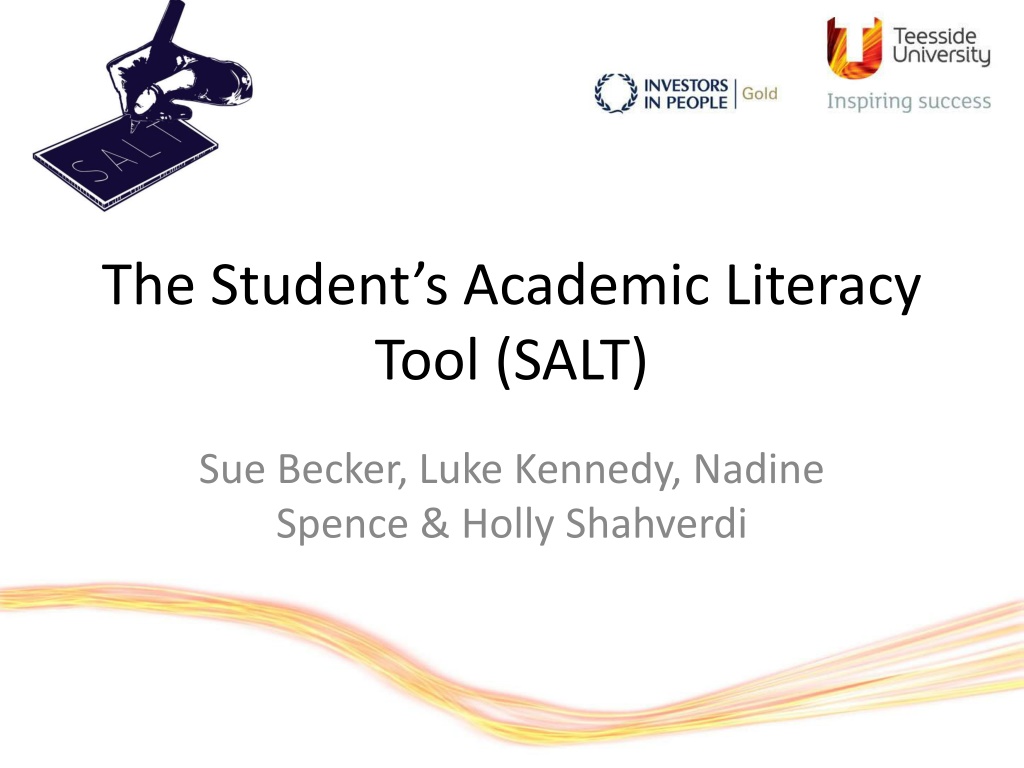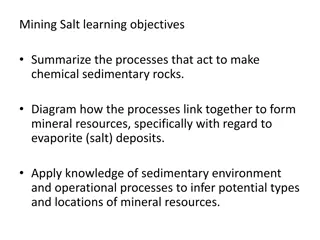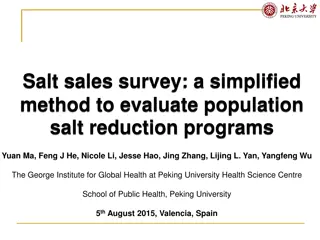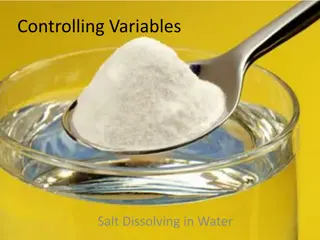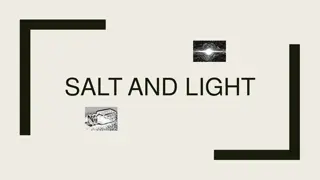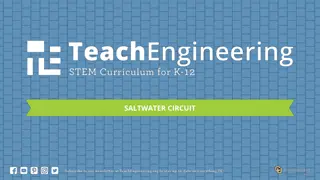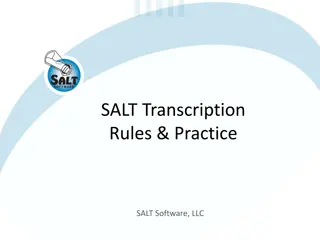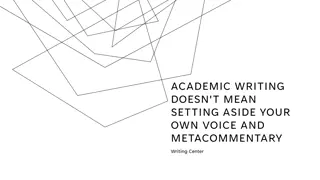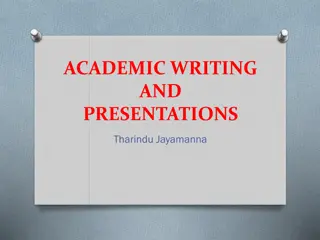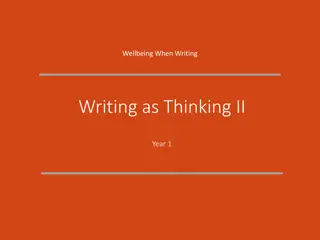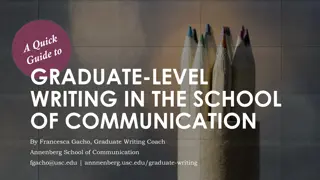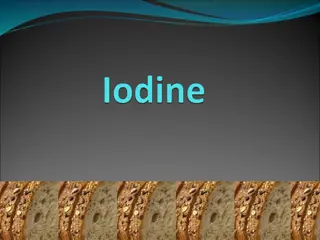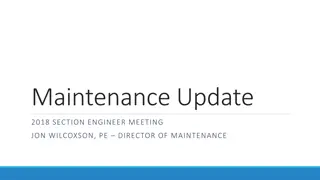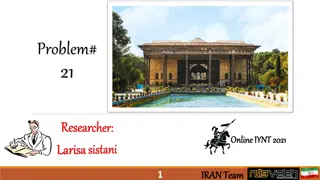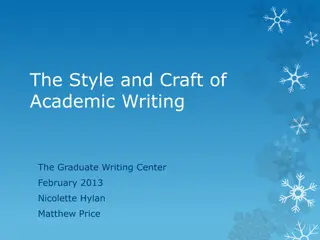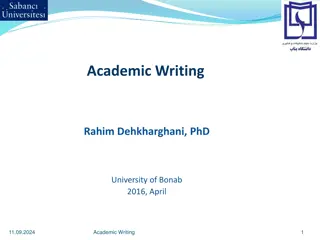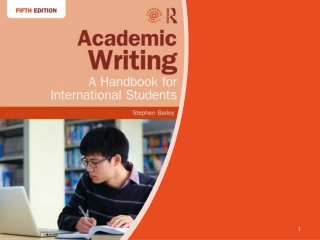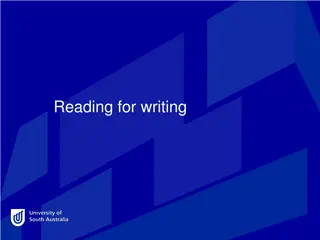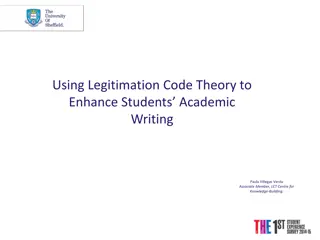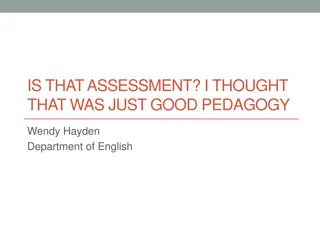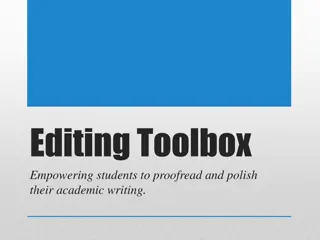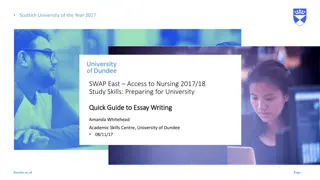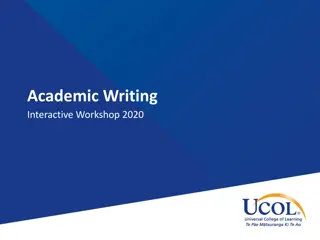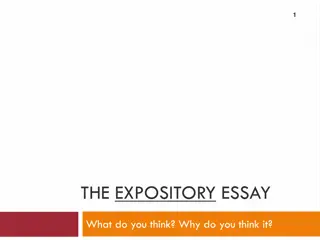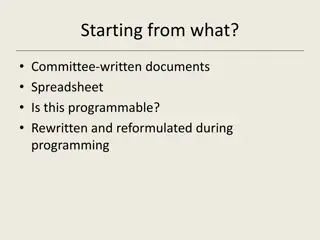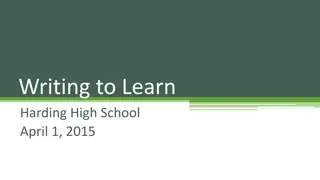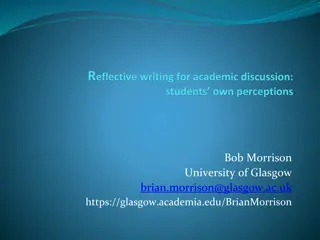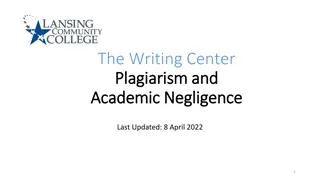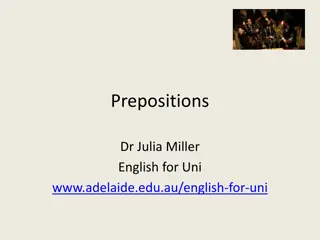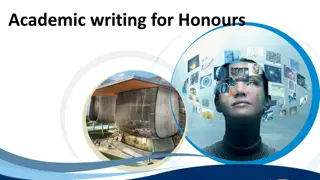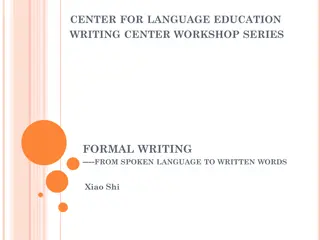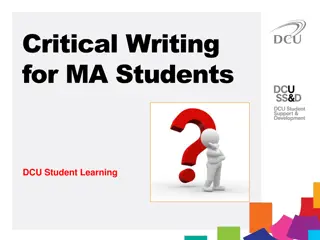Enhancing Academic Writing Skills with SALT Tool
The Students Academic Literacy Tool (SALT) was developed to aid students in improving their academic writing at degree level. Through a pilot study with psychology students, it was found that using SALT alongside traditional feedback led to greater improvement in writing style. Further evaluation is underway to understand the varying degrees of improvement among students. Grounded theory approaches are being used to explore the experiences of both staff and students with SALT.
Uploaded on Oct 04, 2024 | 0 Views
Download Presentation

Please find below an Image/Link to download the presentation.
The content on the website is provided AS IS for your information and personal use only. It may not be sold, licensed, or shared on other websites without obtaining consent from the author. Download presentation by click this link. If you encounter any issues during the download, it is possible that the publisher has removed the file from their server.
E N D
Presentation Transcript
The Students Academic Literacy Tool (SALT) Sue Becker, Luke Kennedy, Nadine Spence & Holly Shahverdi
Working in Partnership Rationale to develop to tool which is accessible and useful to students rather than reflect embedded discourse of staff (Hulme & Forshaw, 2009) May 2013 - team recruited from all years of Undergraduate programmes Partnership approach 3 key principles: engagement; awareness & enhancement (Cook-Sather et al, 2014) Key philosophy shared ownership of outputs & IP (Silvernagel et al, 2009; Becker, Kennedy; Shahverdi & Spence, 2015)
WHAT IS SALT? Constructed to aid students in their writing at degree level. Comprises of four sections that address the following key aspects of academic writing: Section A: Grammatical accuracy Section B: Correct use of language Section C: Structure and development of text Section D: Use of relevant source material
Pilot study 114 level 4 psychology students (2 study skills modules) SALT used in addition to traditional narrative feedback on formative ICA work on selected study skills module
Results Greater improvement in academic writing style amongst those using SALT(M=56.67; SD= 12.6; SEM = 1.8) in comparison to those receiving traditional feedback only (M= 51.51; SD = 10.18; SEM = 1.25), t = 2.42; df = 113; SED = 2.13; p=0.017.
Greater variation in improvement scores than expected Question raised why do some students appear to improve to a greater degree than others? 2 stage evaluation
Staff & student experience Grounded theory approach Focus groups & interviews with students using SALT in study skills modules Focus groups & interviews with students using SALT as self assessment tool Interviews with staff using SALT
Preliminary findings Confidence appears to be central category Lack of knowledge and preparation in writing for University Traditional resources as in accessible & increasingly incompatible with preferred working habits online & interactive resources preferred Seek support from subject specialists rather than central or dedicated services Disengagement as self protection
Developments 2015 winners of JISC Summer of student Innovation Currently working in partnership to develop mobile and web based applications Worldwide beta testing begins in 2 weeks App expected to be released May 2016
Guardian University Awards 2016 Runner up in Student experience category
References Becker, S; Kennedy, L; Shahverd, S & Spence, N. (2015). Improving student writing: working in partnership to develop the Student Academic Literacy Tool (SALT). Journal of Education Innovation, Partnership & Change, 1 (2). Cook-Sather, A. Bovill, C. and Felten, P. (2014) Engaging students as partners in learning and teaching : a guide for faculty. New York: John Wiley & Sons Incorporated. Hulme, J.A. and Forshaw, M.J. (2009) Effectiveness of feedback provision for psychology undergraduate students. Psychology Learning and Teaching, 8(1), 34-38. Silvernagel, C, Schultz, R. R, Moser, S. B and Aune, A. (2009) Student-generated intellectual property: perceptions of ownership by faculty and students. Journal of Entrepreneurship Education, 12, 13-33.
